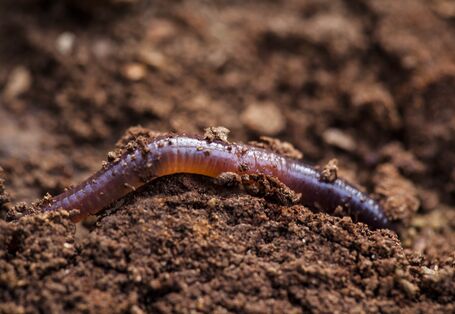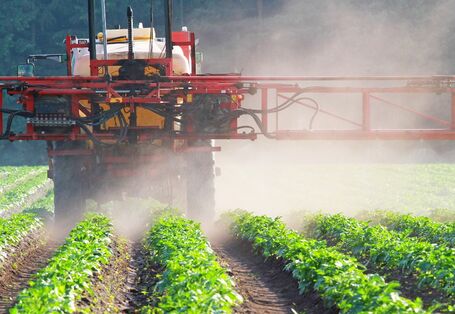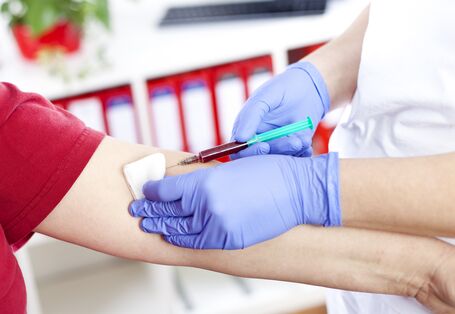Press
Press releases
25–36 of 728
Cornerstones of Socially Just Environmental and Climate Policy

Factoring in the environmental costs of fossil fuels—such as through CO₂ pricing—drives up the cost of petrol, oil and gas. A new study commissioned by the German Environment Agency (UBA) explores how climate and environmental protection policy can be both ambitious and socially fair. Fair burden-sharing is a key pillar of socially just environmental policy.
How much life lies within our soil?

Around 60 percent of all biodiversity on Earth is found in the soil. Soil organisms ensure fertile soil and clean drinking water, build up humus and break down pollutants. And yet, there is often a lack of information on the actual condition of soil organisms in Germany.
Climate change impacts mental health

Climate change can have not only devastating physical consequences for people and the environment, but can also have a significant impact on the human psyche. For example, extreme weather events can trigger post-traumatic stress disorders, while concern over our livelihoods can lead to anxiety about the future and depression.
Heat-related deaths: seniors are at a higher risk

To mark National Heat Action Day, the German Environment Agency (UBA) has published a study on heat-related mortality in Germany. For over four years, researchers from the UBA and the Robert Koch Institute (RKI) have worked to refine the calculation of heat-related deaths in Germany. It was found that around 3,000 heat-related deaths in Germany occurred in both summer 2023 and 2024.
Rat poison harms fish and accumulates in the environment

A large number of fish in German rivers are contaminated with rat poison residues. For the first time, an extensive laboratory study commissioned by the German Environment Agency has investigated the effects of rodenticides on fish health. The result: Even at the concentrations measured in the livers of wild fish, severe symptoms such as blood clotting disorders, bleeding and anaemia occurred.
German agencies classify TFA as toxic substance

TFA belongs to the group of perfluoroalkyl and polyfluoroalkyl substances (PFAS). German authorities demand new hazard classification of the substance considered toxic for reproduction and harmful to the environment.
Franziska Füchsl receives 2025 German Prize for Nature Writing

The 2025 German Prize for Nature Writing is to be awarded to Franziska Füchsl. Elgin Hertel and Laura Vogt are each to receive a scholarship to attend the Art and Nature Foundation’s 2025 Nature Writing Seminar, south of Munich. The award ceremony will be held as part of the international literaturfestival berlin on Sept. 17, at 6 pm on the Small Stage of the Haus der Berliner Festspiele.
Environmental awareness study: crises affect public’s perception of environmental and climate challenges

The majority of people in Germany continue to perceive both the environmental protection and climate change mitigation efforts as important. However, the topic continues to decline in relative perceived significance for the public
Unpredictable risks: solar geoengineering is no solution to the climate crisis

Technical interventions to mitigate the climate crisis are increasingly being discussed internationally. One frequently mentioned intervention is solar radiation modification (SRM). There are several approaches to this, all of which the UBA believes are highly risky and do not represent a practicable solution to the climate crisis. The UBA has now published its findings in a brochure.
Single-Use Plastic Fund: UBA waives requirement to verify quanties in 2025

Since 2024, manufacturers of certain single-use plastic products have been required to bear certain costs for waste disposal and the cleanup of public spaces. Such efforts were previously funded by the general public. The costs for manufacturers are calculated based on the quantity of their products placed on the market annually.
Using household appliances for longer pays off

In the modern consumer society, household appliances are often quickly disposed of and replaced with newer and supposedly better products. One argument for this is the greater energy efficiency of the new appliance.
Environmental pollutants: How exposed are children and young people?

Heavy metals, plasticisers or the “forever chemicals” PFAS – there are many environmental pollutants that children and young people come into contact with. But how high is their exposure in reality? And what impact can it have on the health of young people?